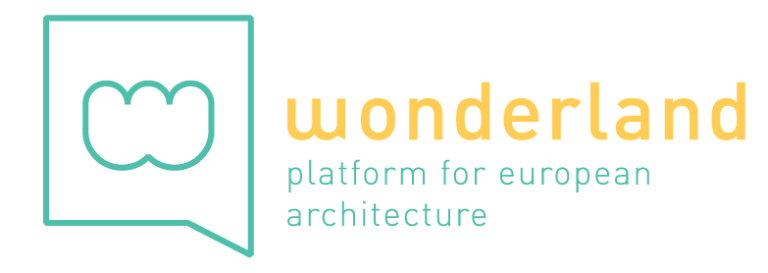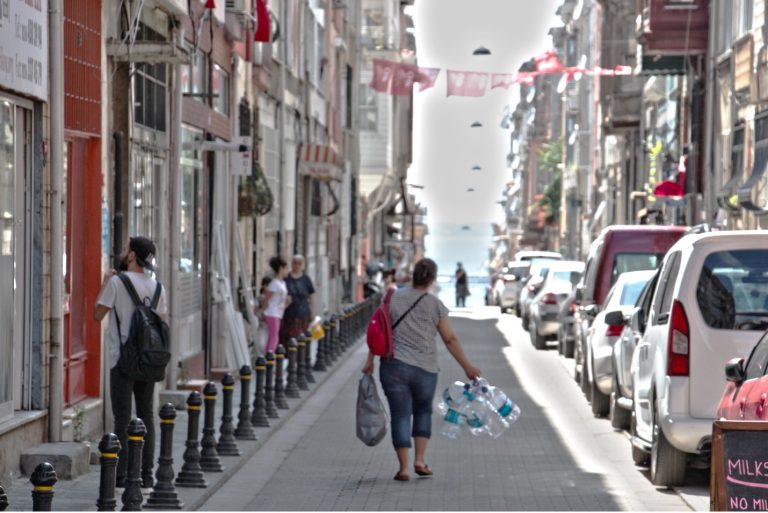
Low-Carbon Futures: How Could the Kadıköy Case Drive Energy Communities in Turkey?
Article written by Batuhan Akkaya and Doğa Sevgi Özen
As cities around the world continue work towards building a greener, more equitable future, energy communities and Positive Energy Districts (PEDs) are emerging as promising solutions. In Turkey, these concepts are gaining momentum, as municipalities, energy experts, and urbanists collaborate for a low-carbon future.
Kadıköy, a densely populated district on the Asian side of Istanbul, is emerging as a hub for sustainable urbanism in Turkey. The district is taking significant steps toward a low-carbon future through efforts in energy transformation, community engagement, and sustainable urban design.
Our article explores the work of three key institutions in Kadıköy, featuring insights from three individuals—Damla Muhcu from Kadıköy Municipality, Dilan Cengiz from Demir Enerji, and Batuhan Akkaya from Urban.koop. Together, they offer valuable perspectives on Turkey’s ongoing urban energy transition.
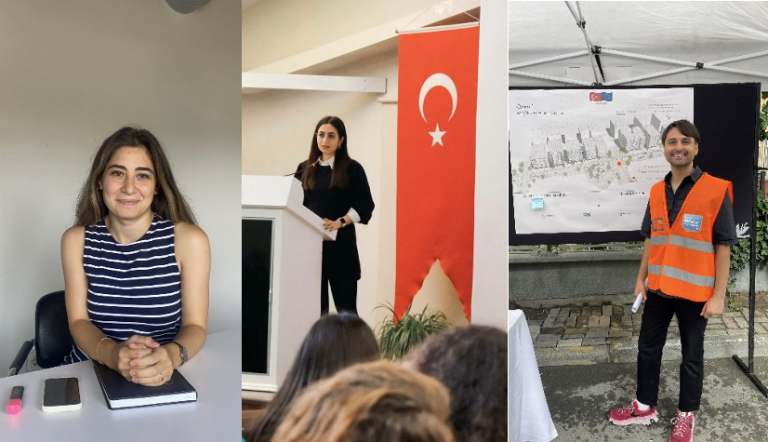
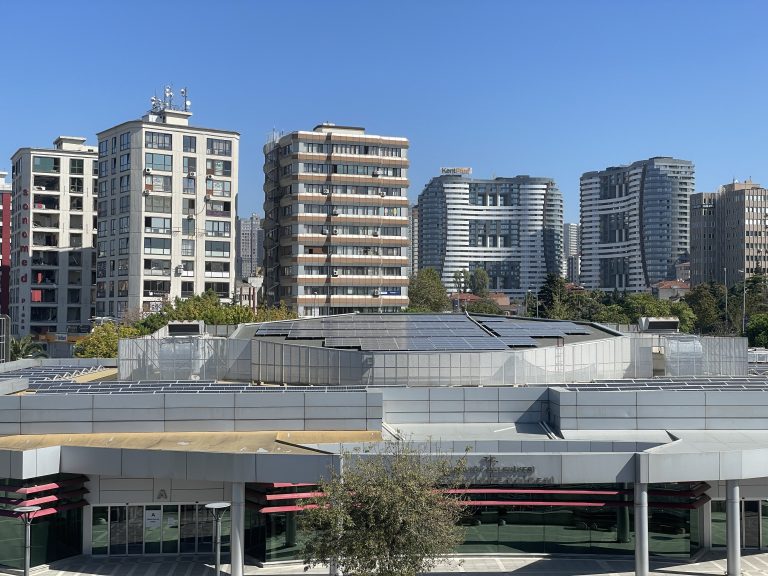
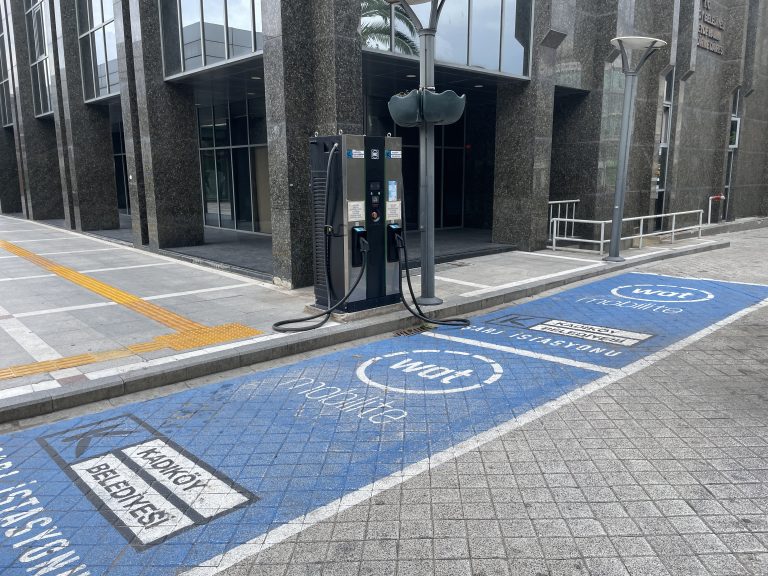
Kadıköy Municipality: Leading Municipal Sustainable Energy Transformation
Istanbul is the largest city in Turkey with more than 16 million habitants. Kadıköy, which is one of the central districts of the metropolitan city of Istanbul, has an area and a population of 482,571. With a participatory and innovative perspective, focusing on protecting the environment and combating the climate crises at the local & national levels, the Kadıköy Municipality creates new places to promote entrepreneurs, climate activists and environmentalists. It also organizes various training activities, events, and seminars to raise awareness, especially for children and youth as the climate ambassadors of the future.
In its Strategic Plan, the Kadıköy Municipality has adopted the objective of “Considering energy efficiency, efficient resource usage, climate change, ecological living, environmental protection and green building criteria for new public space and project development.” The municipality is also committed to the reduction in carbon emissions by 20% by 2020, and has updated its goals to reach 40% by 2030 as a signatory of the Covenant of Mayors. It has also realized the “Sustainable Energy and Climate Change Action and Adaptation Plan (SECAP). Kadıköy has been a member of ICLEI since 2017.
The Kadıköy Municipality has taken important steps in adopting sustainable practices, including the implementation of initiatives such as the Kadıköy Climate Action Plan and exploring the potential of Positive Energy Districts (PEDs). The municipality values participatory decision-making and works closely with a range of stakeholders such as universities, NGOs, and private companies, offering a model for other municipalities in Turkey.
Damla, an expert at the Kadıköy Municipality, described how the local government is working on initiatives related to Positive Energy Districts (PEDs). She explained that Kadıköy, as one of the pioneering districts in Turkey, has been involved in several international projects, including “Making-City,” where the municipality participated as an observer city. Through such projects, they’ve been exploring how PED concepts can be applied locally, including the technical, and architectural aspects as well as the social ones that focus on integrating residents and citizens.
Damla highlighted that Kadıköy’s journey with PEDs started with a feasibility study, which included raising awareness through surveys and learning from international examples. While energy communities do not yet exist in Kadıköy, efforts have been made to increase awareness about energy issues, recognizing the low level of energy consciousness among the local population. She emphasized that energy cooperatives, although present and existent, are often limited to small-scale applications, such as solar panels for apartment buildings. She believes that legal reforms and incentives would encourage the establishment of more energy communities.
Damla also noted that the municipality’s work in this field is not just technical but involves building partnerships with civil society, universities, and private companies to drive the energy transition. Although Kadıköy is still in the awareness-raising phase, the municipality’s role in creating a model for others, engaging local residents, and fostering collaboration is a crucial step toward making PEDs a reality in the future.
Demir Enerji: Supporting Municipalities in Energy Transition
Demir Enerji, a private consultancy, has been assisting municipalities such as Kadıköy in their efforts to develop sustainable energy systems. Dilan Cengiz, an urban planner, is actively involved in helping cities create strategies for Positive Energy Districts (PEDs) and meeting carbon-neutral goals.
“Our focus is on developing frameworks for energy monitoring and identifying potential PED zones, particularly in urban transformation areas,” Dilan explains. “We also help municipalities improve energy efficiency and provide guidance on overcoming challenges related to financing and technical implementation.”
Dilan emphasizes the importance of collaboration between local governments, energy experts, and communities to ensure energy transition. A key challenge in Turkey is the lack of clear legal frameworks and the financial barriers that many municipalities face when implementing energy solutions. High initial costs and limited access to financial support make it difficult for smaller municipalities and communities to invest in energy transitions.
“Energy cooperatives and community-driven models are critical to addressing the economic and organizational barriers,” she says. Despite these challenges, Dilan is optimistic about the role of energy communities in overcoming these obstacles. Local governments in Turkey are increasingly recognizing the value of energy management units to support the creation of energy cooperatives and community-based energy systems. Some municipalities have already started forming energy management commissions to engage with citizens more effectively and promote energy cooperatives as a means to foster local participation and collaboration in energy transition efforts.
Energy transformation is becoming more relevant, particularly with the ongoing urban transformation projects in Turkey, which have strong economic implications. While the integration of energy efficiency and renewable energy systems into these projects remains largely theoretical, it is seen as a significant opportunity to drive community-based solutions.
Dilan also notes that while PEDs are still a relatively new concept in Turkey, there is growing momentum to develop such areas, particularly with support from municipal and international funding.
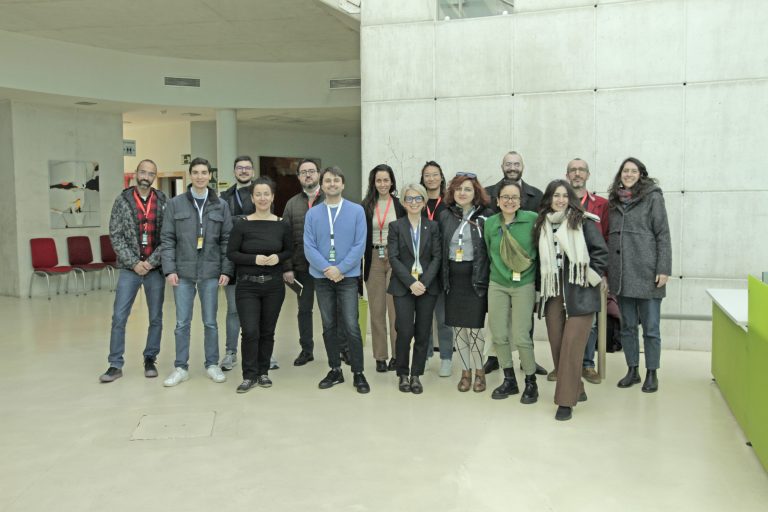
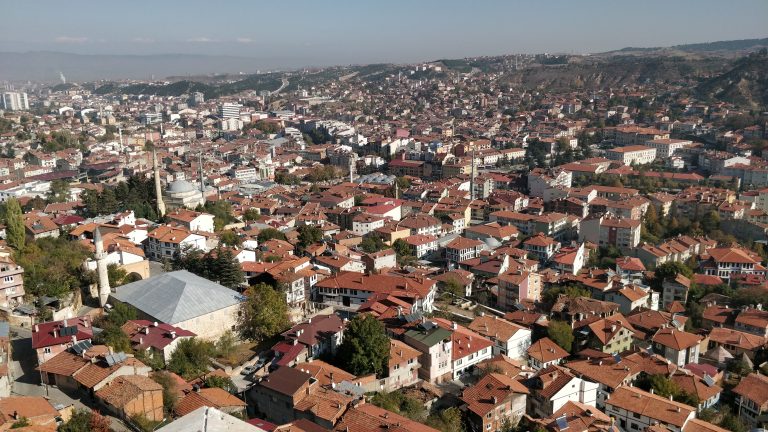
Urban.Koop: Urban Studies Cooperative
Urban.koop, a cooperative based in Istanbul, that brings together a network of urbanists focused on creating urban spaces that consider both ecological sustainability and social equity. The cooperative is involved in urban research, planning, and architecture at various scales, with an emphasis on interdisciplinary and stakeholder-driven projects. It also integrates cultural and artistic practices, fostering innovative ideas for urban development. Batuhan Akkaya, one of the cooperative’s founders, shared how Urban.koop contributes to advancing low-carbon urban solutions, particularly through its work on urban research and design.
The cooperative works alongside municipalities, development agencies, international organizations, and local stakeholders to develop frameworks aimed at reducing energy consumption and carbon emissions across urban neighborhoods. Urban.koop’s urban design guidelines prioritize the integration of low-carbon solutions into buildings, public spaces, gardens, and streets. “Our goal is to integrate sustainability into urban environments, creating spaces that are energy-efficient and promote public health,” Batuhan said. “We aim to transform streets and public spaces into sustainable, walkable, and bike-friendly areas, helping reduce the overall carbon footprint of cities.” An example in this direction is the Healthy Streets project, which reenvisages streets to prioritize pedestrians and cyclists over cars. This project incorporates green infrastructure, renewable energy solutions, and energy-efficient public transport options into urban planning. The project aims to reduce air pollution and greenhouse gas emissions.
Other initiatives is the Maltepe Urban Center Urban Design Guide, which addresses areas experiencing rapid urbanization. The guidelines offer strategies for improving green spaces, incorporating passive solutions, and applying low-carbon building techniques in both public and private developments. The guidelines also focus on creating pedestrian-friendly streets and sustainable public spaces, contributing the way to develop Positive Energy Districts and Low Emission Zones.
Modest Steps for Turkey's Low-Carbon Urban Future
Kadıköy is beginning to emerge as a notable example of Turkey’s efforts toward a low-carbon, sustainable future, with a focus on energy communities and Positive Energy Districts (PEDs). The work of Kadıköy Municipality, Demir Enerji, and Urban.koop provides valuable insights into how urban areas can start integrating energy transition strategies, highlighting the importance of governance, technical expertise, and urban design in this early phase of transformation.
The Kadıköy Municipality is taking important steps towards involving local communities in the energy transition process. Through participatory approaches, the municipality raises awareness and fosters discussions around energy issues, providing a foundation for future energy communities. Although energy transition efforts are still in their initial stages, the municipality’s approach demonstrates the potential for inclusive and locally relevant solutions to emerge as these projects evolve.
Demir Enerji plays a key role in addressing the technical and financial aspects of energy transition. Their expertise in energy monitoring, feasibility studies, and overcoming financial and legal barriers is essential to laying the groundwork for larger-scale energy transformations in urban areas. As Turkey continues to explore energy solutions, Demir Enerji’s work with municipalities helps ensure that energy communities can grow sustainably and become more accessible to a wider range of local governments.
Urban.koop brings an interdisciplinary approach to urban design, focusing on both sustainability and cultural context. Their work demonstrates how low-carbon solutions can be integrated into urban spaces through design that prioritizes energy efficiency, green infrastructure, and public health. Urban.koop is laying the foundation for urban environments that can adapt to climate challenges while also considering social equity and cultural context.
While still in the early stages, the efforts of Kadıköy Municipality, Demir Enerji, and Urban.koop reflect the potential for meaningful progress in Turkey’s energy transition. These institutions are laying the groundwork for a broader transformation toward low-carbon cities and energy communities. As Turkey continues to explore the possibilities of energy communities and Positive Energy Districts (PEDs), the work being done in Kadıköy provides a valuable model for how cities can begin to address the complex challenges of energy transformation, despite the hurdles that remain.
